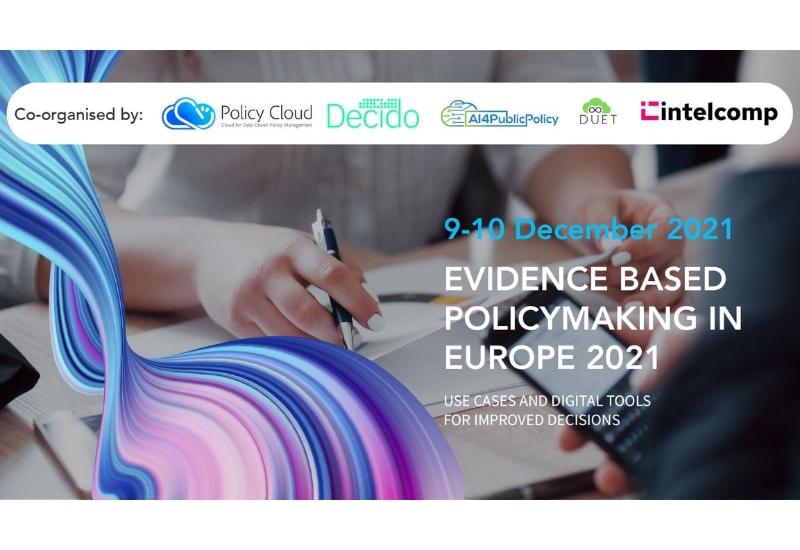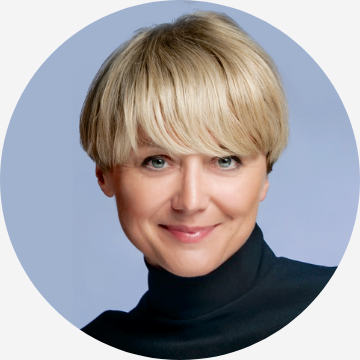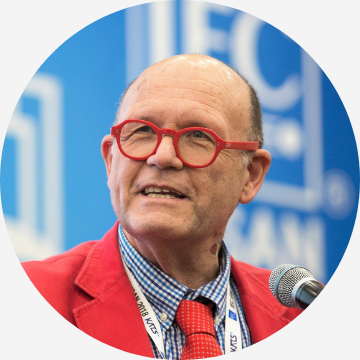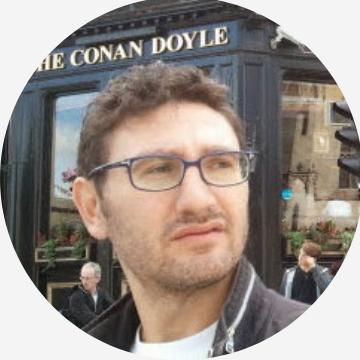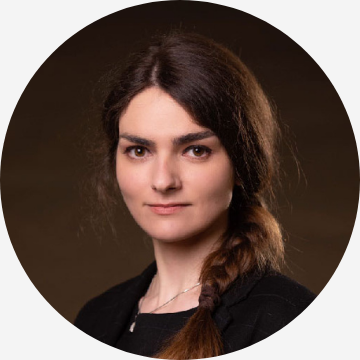
- Cloud for Data-Driven Policy Management
- Contact Us
- Join our community
- Login
Evidence Based Policymaking in Europe Summit: 2021
Evidence Based Policy Making in Europe Summit 2021
The convergence of Cloud, Big Data and AI has already resulted in major transformation across Government services, yet the process of policy making itself is often left behind. Join Policy Cloud, Decido, AI4PublicPolicy, DUET and Intelcomp at the virtual Evidence Based Policy Making in Europe event to explore major challenges, trends and opportunities to improve public sector decision making that will deliver healthier, happier places to live and work.
Digital technologies have changed the world. Today people expect faster, seamless, on-demand services from their providers, and Government is no exception. For effective urban operations which make life easier for residents, workers and visitors, Public Sector decision making needs to become more agile, breaking down data silos to combine day-to-day tactical decisions with longer term policies and strategies. Disruptive technologies such as Digital Twins, Artificial Intelligence (AI) and High Performance Computing (HPC) unlock new opportunities for sustainable decision making through visualisations, simulations and predictions that enhance transparency, increase public support and involvement, and optimise resources.
To support this transformation, Policy Cloud, Decido, AI4PublicPolicy, DUET and Intelcomp pan-European projects and initiatives dedicated to using cloud for data-driven policy, have joined forces to host Evidence Based Policy Making in Europe, a premier conference for government that focuses purely on data and tools for decision making. Together with leading change agents from the European Commission and Local Government the event will explore the new decision-making ecosystems being built by cities and administrations, including the use cases being adopted, and the innovative data and tools being adopted for modern policy making.
- Day 1
-
9th December
Day 1: Evidence Based Policy Cases - from data to decision making
10.00-10.30
Plenary:
Given the complexity of our societies and the rapid generation of data, how can public authorities transform the usually slow, deliberative policy making process to one that is more agile and responsive, which develops better evidence-based policies which adapt as new data comes to light, and which are trusted, understood and contributed to by relevant stakeholders.
Speakers: Andrea Halmos, Alan Paic, Claudia Fabó Cartas, Lieven Raes, Michela Magas
Plenary Recording:
10.30-11.00
11.00-11.30
11.30-11.45
Evidence Based Policy Cases - Pilot Sudies
Will the plethora of data help us make better decisions and better policies? Public authorities use data (whether it's citizen science or gov data) to inform short- and long-term policy decisions, or to improve existing services. Experimenting with policy options will enable governments and cities to tackle complex, policy problems that require innovative thinking to develop transformative solutions.
11.45-12.15
Coffee break
12.15-12.30
Track 1: Health and Society
The tight connection between people and government in co-creating new and targetted policies
Covid 19 has highlighted the importance of peoples health and social needs and the need to address some longstanding challenges.
Topics & Speakers:
Science Technology and Innovation Policy in the domain of Cancer - Paresa Markianidou (Technopolis Group, IntelComp)
Policy Cloud policies against radicalisation - Armend Duzha (Maggioli, Policy Cloud)
Health Policies: co-creation and AI for a targeted policies' implementation - Germana Gianquinto (GFT Italy, AI4PublicPolicy)
Recording
Track 2: Climate Change
What can we do to slow down Climate Change?
We are in the midst of a climate crisis which is contibuting to public health problems. Governments need to reduce and elimate emissions fast. Environmental policies exist but have largely failed to make a difference as measures have mainly focused on making emission reductions profitable for business, think carbon credits, energy saving bulbs. For more sustainable outcomes which make cities happier and healthier places to live for all, creative and innovative policies and tools need to be cocreated by the whole value chain. Digital enablers such as IoT, Cloud and Big Data ensure stakeholders can work together with a common-view/visualisation of the situation so they can simulate and predict the impact of differing policy choices.
Topics & Speakers:
Focus on Science Technology and Innovation for policy in the domain of Blue Economy - Phoebe Koundouri (ATHENA RC, IntelComp)
Event-based Policy making and co-creation in the disaster risk management - Antonio Filograna (Engineering Ingegneria Informatica, DECIDO)
Data-driven policy-making for green routing in Athens - Ilia Christantoni (DAEM, DUET)
Recording
Track 3: Mobility
Mobility policies, a new era for cities and citizens
Transport forms the backbone of all urban economies. The ability to move freely, cost-effectively and easily is one of the most important drivers of economic and societal development. Its policies are interdisciplinary with a direct impact on urban development and the environment so European cities require effective strategies to help overcome these challenges. . New technology like Digital twins and the resulting location based geographical information (GI) it produces is changing the nature, costs and impact of transport on a real-time basis. It is this shift in speed, detail and synchronicity that presents a suite of new opportunities for public sector policy makers. Hear from cities at the leading edge of smart mobility innovation.
Topics & Speakers:
Pilsen Digital Twin City - Jiri Bouchal,
Policy Cloud urban policy making through analysis of crowdsourced data - Ana Georgieva (Sofia Municiplaity, Policy Cloud)
The experience of the Pilots in mobility in AI4PP - Alessandro Amicone (GFT Italy, AI4PublicPolicy)
Recording
12.30-13.00
13.00-13.30
13.30-14.00
Recommendations from the 3 tracks
Recording Plenary Wrap-up:
15.00-15.30
Policy Cloud Innovation Workshop: How to make data-driven policies a reality in your organisation?
The convergence of Cloud, Big Data and AI has already resulted in major transformation across Government services, yet the process of policy making itself is often left behind.
The Policy Cloud project aims to harness the potential of digitisation, big data and cloud technologies to improve the modelling, creation and implementation of policy. In three years (2020-2022) the project is addressing challenges faced by many public administrations in improving how they make policy decisions by accessing and using data.
The Policy Cloud Innovation workshop invites participants of the Evidence Based Policymaking in Europe Summit 2021 to join its innovation workshop, intended as a playground for discussions on how to make data-driven policies a reality in your organisation.
Agenda
- Welcome & icebreaker introductions - Marieke Willems (Trust-IT)
- Policy Cloud for evidence based policymaking in Europe - Ricard Munné (Atos)
- What about the policymaking challenges in your organisation? (discussion with participants) - Alberto Miranda (Atos)
- What the PolicyCloud for data-driven policymaking can do for policymakers in Europe:
- Policies against radicalisation Pilot - Armend Duzha (Maggioli)
- Intelligent policies for the food-value chain Pilot - Javier Sancho (Sarga)
- How to make data-driven policies a reality in your organisation? interactive discussion with participants - Alberto Miranda & Marieke Willems
- Wrap up - Alberto Miranda (Atos)
15.30-16.00
16.00-16.30
16.30-17.00
- Day 2
-
10th December
Day 2: Innovative Tools for Evidence Based Policy - from digital disruption to digital adoption
10.00-10.30
Plenary:
The convergance of Cloud, Big Data and AI has already caused considerable transformation across Government. With citizens demanding better experiences as their expectations shift towards quick, seamless and personalised services, now is the time for Public Sector decision makers to embrace digital disruption and new innovative technologies to make more more sustainable policy based on real-time information, predicted impact and citizen input.
Speakers: Roberto Di Bernardo, Michael Mulquin, Suzanne Dumouchel, Natalia Manola
Recording
10.30-11.00
11.00-11.30
11.30-11.45
Innovative Tools for Evidence Based Policy
The convergance of Cloud, Big Data and AI has already caused considerable transformation across Government. With citizens demanding better experiences as their expectations shift towards quick, seamless and personalised services, now is the time for Public Sector decision makers to embrace digital disruption and new innovative technologies to make more more sustainable policy based on real-time information, predicted impact and citizen input. The Data Driven Policy Cluster is consultating with stakehiolders for a tailored and suer-centric development of tools for evidence-based policymaking while keeping a close eye on legal compliance and interoperability.
11.45-12.15
Coffee break
12.15-12.30
Track 1
A New Era of Collaboration, Co-creation & Consultation with Citizens & Stakeholders
We live in a digital world, shopping, working and even meeting our friends and partners online, Despite the wealth of digital tools at our fingertips, participation in democratic processes is falling across Europe. This may be beacuse so far Governments have just digitised what we already do offline (e.g. e-petitions, e-consultation etc.) whereas new technologies and data opens up much more exciting possibilities for collaboration, co-creation and consultation with citizens. This track explores how new technologies and tools can be used for engagement and innovative collaboration between policy makers and citizens creating ecosystems for positive change.
Topics & Speakers:
The Turin Co-Creation Model - Fabio Perossini (KPRF, DECIDO)
Co-creation of STI policies using the IntelComp platform - Jerónimo Arenas García (Universidad Carlos III, IntelComp)
LDT Typology - Pavel Kogut (21C Consultancy, DUET)
Recording
Track 2
Forging the Future with Policy Impact Analysis & Prediction
The wealth of data at our disposal should not only be used to understand the areas where new policy or change in policy is needed, but also to predict the impact of those policies, giving realistic KPIs on which they can be judged. This track will explore how policy impact prediction and analysis will lead to measurable outcomes and further policy refinement.
Topics & Speakers:
Using the IntelComp platform in the process of science and innovation policy - Joseba Sanmartín (FECYT, IntelComp)
Policy Cloud, Data Analysis and Simulation - Ricard Munne (Atos, Policy Cloud)
Data and disruptive technologies for evidence based policymaking - Francesco Mureddu (The Lisbon Council, DECIDO)
DUET - Digital Twin technology for data-driven policymaking - Jurgen Silence (AIV, DUET)
Recording
Track 3
Managing Legal, Ethical & Standards Challenges and Constraints in a Digital World
While developing data-driven policy management tools, the cluster keeps a close eye on legal and ethical aspect.
Speakers:
Martim Taborda Barata & Alberto Bettiol (ICT Legal Consulting, Policy Cloud)
Vanni Resta (KPRF, DECIDO)
Marina Cugurra (GFT, AI4PublicPolicy)
Recording
12.30-13.00
13.00-13.30
13.30-14.00
Wrap-Up
Recording
Taking place virtually on the 9th and 10th of December, 2021, here's what to expect:
- Use Cases: We’ve asked our speakers to bring real-life examples of how they are transforming the traditionally slow deliberative policy making process in the fields of health, climate change and mobility, to one that is more agile and responsive. Hear directly from cities themselves on how they are developing better evidence-based policies which adapt as new data comes to light, and which are trusted and contributed to by relevant stakeholders who feel engaged in the process.
- Tools: See how city managers and policy makers are co-creating data-driven decision-making ecosystems with cutting edge tools which enable them to visualise, analyse and even predict the complex impact of decisions across multiple domains, time and space. Be hands-on with AI, big data and digital twin demos and be inspired by what you could potentially achieve for your administration.
- Strategies: Learn how to manage legal, ethical and standards challenges and constraints in our increasingly digital world. From best practices to principles and legislation our speakers will help you understand and navigate the complex environment in pragmatic ways that will get you started on your journey.
Attendance is open to all. Join us as we forge the future of modern policy making.
SUBSCRIBE TO OUR NEWSLETTER FOR REGULAR NEWS AND UPDATES
Speakers

Andrea Halmos 
‘Technologies for Smart Communities’ Unit of DG CONNECT at the European Commission
Andrea Halmos works at the European Commission, as Policy Officer in the ‘Technologies for Smart Communities’ Unit of DG CONNECT. Her current activities focus on helping cities and communities better harness data and Artificial Intelligence in order to meet their environmental and climate objectives, provide high quality services to citizens and businesses and make better-informed decisions. This includes work on a data space for climate-neutral and smart communities, supporting the implementation of AI-enabled, digital services and supporting cities to create their digital twins (Local Digital Twins).
"EC policy helping (local) public administrations use digital twins for evidence-informed (data-driven) decision-making"
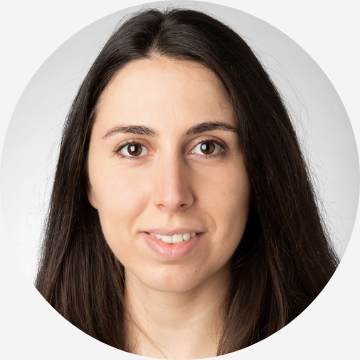
Claudia Fabó Cartas 
Project Officer, ECSA
Claudia works at ECSA as Project Officer for the EU-Citizen.Science project, where she leads the work package on “Platform, Community and Network Building“. Previously, she was part of the organising team of the Citizen Science SDG Conference in October 2020 on citizen science’s contribution to framing and achieving sustainable development.

Alan Paic 
Senior Policy Analyst, Science and Innovation Policies, OECD
Alan Paic is a Senior Policy Analyst in the Science and Technology Policy (STP) Division, within the Directorate for Science, Technology and Innovation (DSTI) of the Organisation for Economic Co-operation and Development (OECD). Alan is in charge of various aspects of science and innovation policy, notably Open access to data for science, technology and innovation, Innovation Policy Reviews for non-member countries, and international cooperation in research and innovation for sustainable development. Mr. Paic joined the OECD in 2010 and has worked in the Global Relations Secretariat, as Head of Programme for South East Europe, working on the general competitiveness agenda as well as on specific innovation policies. He initiated and co-ordinated the flagship publication: “Competitiveness in South East Europe: A Policy Outlook” (which covers 15 areas of policy with contributions across the OECD); “Social Innovation Framework for Croatia”; and “Triple Helix Partnerships for Innovation in Bosnia and Herzegovina”, to name but a few. Prior to the OECD, Mr. Paic worked as particle physicist at CERN, and as a strategy consultant in the private sector, with Monitor Company and Stratorg. Mr. Paic holds a Ph.D in particle physics from the Neuchatel University (Switzerland) and a Master of Business Administration from INSEAD, Fontainebleau.
Lieven Raes 
Smart City expert at Information Flanders
Lieven is an internationally recognised Smart City expert at Information Flanders with responsibility for driving transformational change in Government. He leads the high profile DUET project and the COMPAIR project which both aim to create digital twins for more open and collaborative urban decisions related to the EU Green Deal. Lieven also serves as a workgroup lead to the Open Geospatial Consortium.
Michela Magas 
Chair, Industry Commons Foundation
Michela Magas is advisor to the EU and G7 and the creator of the concept of the Industry Commons. She is the Innovation and Sustainability Manager for OntoCommons, which creates an ecosystem of understanding across industrial knowledge domains through standardisation of data documentation for the Industry Commons. She was named European Woman Innovator of the Year in 2017 and Innovation Luminary by the EU and Intel Labs Europe in 2016. She is the founder of MTF Labs, a global technology prototyping platform of over 7500 creative innovators and scientific researchers, and has 27 years of experience of innovation for industry.
Michael Mulquin 
OASC MIMs Ambassador
Michael Mulquin has spent nearly 30 years partnering with cities, rural areas, and industry on how technology can help neighbourhoods and cities work better. For the last ten years he has been focusing on the development and implementation of smart and sustainable city standards. He is Chair of the IEC Smart Cities Systems Committee and is an active member of smart city standards work within ISO and JTC1. He is Co-Chair of the IEC-ISO-ITU Joint Smart Cities Task Group. He is Principal Architect of the TM Forum’s Smart City Maturity Model and received the TM Forum Outstanding Contributor Award in 2017. He is City Standards Associate with the Connected Places Catapult – the UK Government Innovation Agency for smart transport and smart cities – and is a member of the UK Government External Advisory Group on Secure Connected Communities.
Suzanne Dumouchel 
Research Engineer, CNRS
Suzanne Dumouchel, PhD in French literature, is a research engineer at the CNRS. She works in the Huma-Num unit, a large infrastructure for digital humanities. She leads the European project TRIPLE which aims to develop a platform for data discovery, research projects and researchers in SSH. She is co-coordinator of the European research infrastructure OPERAS, dedicated to Open Access scholarly communication in the field of SSH. Strongly committed to the Open Science movement and to the promotion of research in SSH, she is particularly active in the field of research infrastructures.
Antonio Filograna 
Senior Researcher & Project Manager, Engineering Ingegneria Informatica
Antonio is a senior researcher and Project Manager at Engineering Ingegneria Informatica. He is an expert in ICTs with special skills in areas like eGovernment, Social Innovation, Smart City, Data Protection technologies, Cloud Computing and Policy making. He was involved in several European projects dealing with public service for PA, smart environment, policy making and renewable energy.
"Co-creating policies along with citizens means giving them a better quality of life"
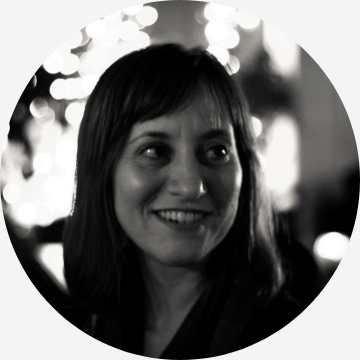
Ilia Christantoni 
Head of EU Projects Sector, DAEM
Ilia Christantoni is a National and Kapodistrian University of Athens graduate and holds a BSc Degree in Computer Science and Telecommunications (2004) and two post graduate degrees (MSc) in: Radioelectrology and Electronics (2012), as well as in Neurosciences, Socio-biology and Education (2014). She has been working in the IT sector (System Administration, Education) and since 2014 is a freelance Scientific Collaborator in the National Hellenic Research Foundation. Her professional skills were further enriched in the field of project management as a financial and project officer in EACEA (Education, Audiovisual and Culture Executive Agency), European Commission. Since 2017 is the Head of EU Projects Sector in DAEM S.A. and has been involved in the projects City4Age, CharGED, VisiOn, CO3, EXTREMA, DUET, MESOC, CODE(EEA Grants), PRELUDE, FUSILLI, AI4PublicPolicy and ASSURED.
Ana Georgieva 
Innovative Sofia, Sofia Municipality
Ana Georgieva is part of the Digitalisation, Innovation & Economic Development department of the City of Sofia (Innovative Sofia). Since 2018, Ana has been working for the digital and business development of Sofia and the establishment of its recognizable brand as a leading innovative and entrepreneurial hub and a preferred destination for both work and life. Ana participated in the development of the Digital Transformation Strategy for Sofia, as well as numerous international projects related to innovative urban development, international collaboration, digitalisation, e-services optimisation, etc. Ana has degrees in International Relations and International Logistics, background in research, entrepreneurship, digitalisation and economic development, and passion for innovation and creative industries.
"Science, co-creation, international collaboration and creativity are among the key factors for long-term sustainable global urban development."

Jiri Bouchal 
CEO, InnoConnect
Jiri is a senior consultant at IS-practice and a co-founder and CEO at InnoConnect, a software start-up offering interactive maps for visual analysis of big data. Jiri Bouchal has extensive experience as business analyst and digital transformation, Smart city, Smart mobility & IoT consultant with a successful track record in H2020 research & innovation funding. Jiri obtained MA diplomas in Law and in European Studies.

Natalia Manola 
CEO, OpenAIRE
Natalia Manola is the CEO of OpenAIRE (www.openaire.eu), a pan European e-Infrastructure supporting scholarly communication and open science in Europe. Natalia holds a Physics degree from the University of Athens, and an MS in Electrical and Computing Engineering from the University of Wisconsin at Madison and has worked for several years as a Software Engineer and Architect in the Bioinformatics commercial sector. She has expertise in Open Science policies and implementation, having served in the European Open Science Cloud (EOSC) Executive Board 2019-20, and in the Open Science Policy Platform (2016-17), an EC High Level Advisory Group provide advice about the development and implementation of open science policy in Europe.

Roberto Di Bernardo 
BDVA Smart Governance and Smart Cities sub-group
Roberto Di Bernardo is Senior Researcher and Head of the Open Government R&D Group (part of Open Public Service Innovation Lab). He is an Electronic Engineer with Professional Master’s diplomas in “Clinical Engineering” and in “Internet Software Engineering”. He has been working as researcher at Engineering R&D Laboratory since 2004, being involved in management and technical activities in many Italian and European projects. He is also acting as R&D opportunity and network developer for the entire Public Sector R&D area. At the moment, he is coordinating URBANAGE project (H2020-DT-Transforations-02) and his group is leading/involved, among others, in the following projects: DECIDO (H2020-DT-Governance-12), INTERSTAT (CEF-Public Open Data), SPOTTED (CEF-Public Open Data), ACROSS (H2020-DT-Governance-05), URBANITE (H2020-DT-Transformations-02). Currently he is leading the Smart Governance and Smart Cities sub-group of the Big Data Value Association and co-leading the Smart Cities Domain Committee of the FIWARE Foundation.

Paresa Markianidou 
Principal Consultant, Technopolis Group
Paresa has developed expertise in the assessment of innovation and R&D policies and their impact on major socio-economic aggregates at both national and regional level. Paresa also manages data resources to accommodate the needs of projects and maximises the value of the Technopolis’ core databases. She has substantial experience working with bibliometrics using Scopus, trade data using UN Comtrade, patent data using Patstat. Her methodological expertise are in time series analysis and forecasting, panel data modelling, Cost Benefit Analysis, comparative analysis, survey analysis and data mining such as factor, cluster and network analyses.

Armend Duzha 
Senior Project Manager & Research Associate, Maggioli S.p.A
Armend Duzha is a Senior Project Manager and Research Associate at Maggioli S.p.A. He is responsible for the management and coordination of international R&D&I projects co-funded by the European Union’s Horizon 2020 research and innovation programme and is particularly specialized in transferring research results into the industry. He has been involved in more than 20 projects, in different domains, including cloud computing, big data analytics, and cybersecurity.
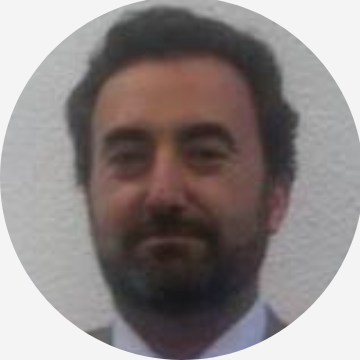
Alberto Miranda
Senior Business Consultant, Atos
Alberto Miranda Garciais a Senior Business Consultant at Atos and has a Degree in Economic Science with specialty in Business Administration at Valladolid University, complemented with a Masters Degree in financial Advisory and Wealth management at Instituto Español de Analistas financieros (IEAF) with EFPA certification. Coming from the financial industry sector (Barclays Bank UK), he started in Atos in the Financial Services of Consulting Division in 2006 focus on strategic and project management consultancy for Financial and Insurance institutions (BNP, Banco Santander, BBVA, Carrefour, MAPFRE, Ocaso). In 2017 he joined the Financial Services sector of the Atos Research and Innovation unit, committed to business consultancy and exploitation management in several projects at a European level, mainly related to Cybersecurity and Identity.
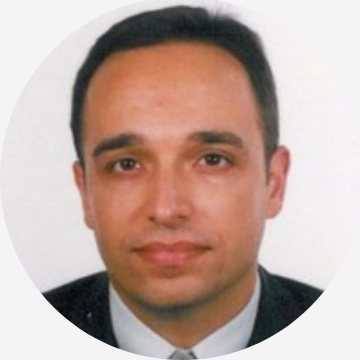
Ricard Munné 
Project Manager, Atos
Ricard Munné is a Project Manager in the Public Administration sector of Atos Research & Innovation. He earned a degree in Telecommunications Technical Engineer, and pursued a postgraduate in Information Technology Management at Universitat Ramon Llull, Barcelona. Since 2011 is working in Atos Research and Innovation where he has been involved in several EU projects related to various aspects of public sector like Rural Inclusion, FOCUS, BIG, SECONOMICS, MOVEUS, RERUM, Science2Society, BDVe, Big Policy Canvas and Grapevine. He is the PolicyCLOUD consortium Coordinator.

Pavel Kogut 
21c Consultancy
Pavel is a senior researcher working across an extensive portfolio of digital projects, from helping cities make more effective policy through local digital twins to supporting rural areas with foresight for better long-term strategic planning. Recently Pavel developed an online course to help people across the public sector make better policy through data and visualisations.
"As more and more cities implement digital twins (DTs), a theoretical framework is needed to explain the kind of DTs that have emerged and their unique characteristics. DUET's DT typology is the first step in this direction, intended to improve our understanding of the evolving DT landscape at urban scale."

Joseba Sanmartín
Senior Policy Analyst, FECYT
Joseba Sanmartín (male) holds a master’s degree in Applied Economics and a master’s degree in Public Policy Evaluation, and is a Senior Policy Analyst at the Spanish Foundation for Science and Technology (FECYT).He is also a Spanish delegate to the OECD’s Working Party of National Experts on Science and Technology Indicators
(NESTI). He is the project manager at FECYT of all activities and projects dealing with the use of new sources of data and new techniques –in particular, text analysis- for science and innovation policy.
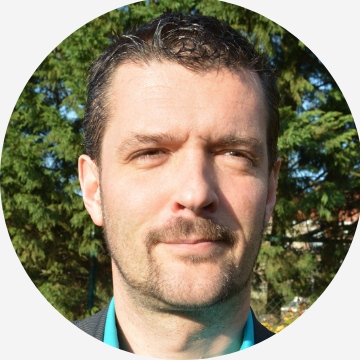
Jurgen Silence 
Senior Project Manager, Digital Flanders Department, Flemish Government
Jurgen Silence, works for the Flemish Government as a Senior Project Manager for the Mobility and Public Works Department and the Flanders Information Agency. Jurgen is coordinating the DUET H2020 and COMPAIR H2020 consortia, is active in the URBANAGE EU project and has extensive expertise in project leadership, project implementation (setup, business and functional design, management) and big data (data collection, data management and analysis, visualisation of complex datasets). Jurgen also runs his own company SiBeTec, which focuses on application development, management, scientific and technical consulting.
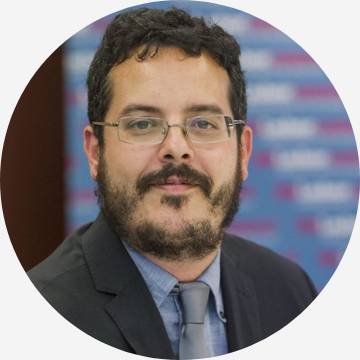
Francesco Mureddu 
Director, The Lisbon Council
Director at the Lisbon Council, analyst and strategist in innovation and technology policies, has driven the design and delivery of consultancy and research projects in a wide variety of topics including the impact of Digital Transformation, Big data and Artificial Intelligence, e-government, Smart cities, ICT-enabled social innovation, future science, Citizen Science, research and innovation policies, health.
"Better data for Future Predictions"
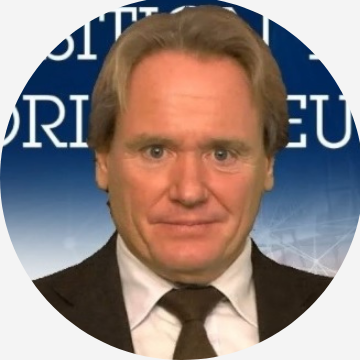
Vanni Resta 
University of Rome
Graduated with honors in Economics at "La Sapienza" University of Rome since 1995 he is involved in EU R&I projects. In 2016 he started being Lecturer at different academic institutions in post-graduated masters at: “la Sapienza” University of Rome, Uninettuno, L’Aquila University and others. He is an observer of new ethical questions in the field of sustainability, inclusion and digital transformation.
"Ethical tasks management for people involved with climate change intervention and environmental sustainability"
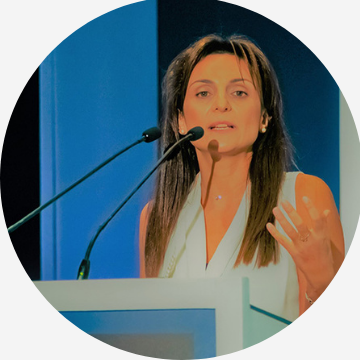
Phoebe Koundouri 
Athens University of Economics and Business
Phoebe Koundouri is Professor and Director of ReSEES Research Laboratory, Athens University of Economics and Business; Director of Sustainable Development Unit and EIT Climate-KIC Hub Greece, Athena RC; Fellow, World Academy of Art and Science; President-Elect of the European Association of Environmental and Resource Economists; Co-chair SDSN Europe & SDSN Greece.

Alberto Bettiol 
Partner, ICTLC Italy
Since 2020, he is a partner of ICTLC Italy and a fellow researcher of the Italian Institute for Privacy. During his studies and his career, he focused on privacy law, compliance systems, anti-money laundering and counter financing of terrorism and performance of compliance audits. He speaks Italian, English, and French.
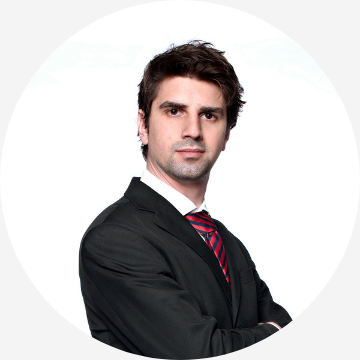
Martim Taborda Barata 
Partner, ICTLC
Martim joined ICT Legal Consulting International in late 2017, and has recently become a Partner of the firm. He has a law degree from the Lisbon Catholic University of Portugal, and completed an LL.M. at King’s College London on Intellectual Property & Information Law. He began working as a trainee lawyer at a renowned law firm in Portugal, before making the move to ICT Legal Consulting International three years later, following his admittance to the Portuguese Bar Association as a qualified Portuguese lawyer (in 2017).
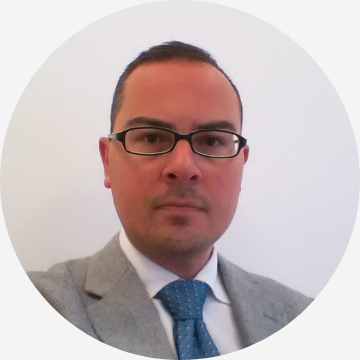
Alessandro Amicone 
Project Manager, GFT Italy
Alessandro is a Project Manager at GFT Italy, leading both funded and market projects. In the first part of his career he worked mainly in projects on document and business process management for Banks and Insurances. In the last 4 years he has been working on R&D projects based on Blockchain, smart contracts and distributed/self-sovereign identity promoting Smart Communities between companies in the Industry sector.

Germana Gianquinto 
Project Manager, GFT Italy
Germana is coordinator and project manager in several projects funded under the Framework of H2020 and EIT Digital (Kyklos 4.0, AI4PublicPolicy, EIT-Dealhunter within the most recent ones). Prior to joining GFT Italia Srl, she worked as a Project Manager for the Organization of European Cancer Institutes-EEIG, and with the Italian Ministry of Labour where she supported the management and implementation of Internationalization projects funded by the EU or Public Administration.
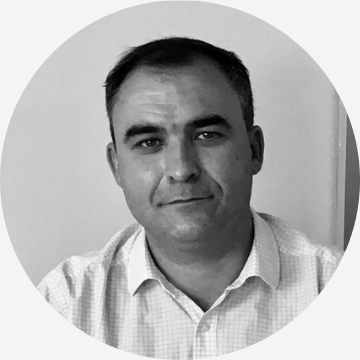
Javier Sancho 
Sarga
Studied law at University of Zaragoza, receiving his Master in Marketing and commercial management in ESIC business school. He has extensive experience in managing complex projects and event organization. He worked during the sixth and seventh term in the cabinet of the Aragón Minister of agriculture and environment. He also had experience in management of European projects, and international trends. He collaborates regularly with the general direction of eAdministration and Digital Society.

Marieke Willems 
Project Manager, Trust-IT
Marieke Willems is a Project Manager at Trust-IT Services. With an MBA and an MSc in Communication Science. Marieke is involved in several activities on research projects, involving stakeholders’ engagement, marketing research and communications. She is currently leading the dissemination work in the European Research and Innovation projects Social Sciences and Humanities Open Cloud (SSHOC) and Policy Cloud, and is involved in the Horzions Results Booster and EOSC Future.

Fabio Perossini 
Founder & Director, Kpeople
Kpeople Research Foundation founder and Director (as well as for Kpeople ltd), Fabio has more than 30 years’ experience as an International Program Manager. He has developed a deep experience in the management of big programs in the field of emergency management, cultural heritage, innovation in public administration and social innovation. He has also matured a twenty-year experience in managing social initiatives being a pioneer in implementing horizontal subsidiary initiatives within Municipalities and local Institutions in general.
City of Turin Communities, approaching evidence based policy improvement. A journey starting from the citizens' engagement to their involvement in co-creation of policy improvement pathways - The Hackathon approaches.

Jerónimo Arenas García 
Associate Professor at Universidad Carlos III
Dr. Jerónimo Arenas García is an Associate Professor at Universidad Carlos III. He has carried out stays at universities such as UCLA, DTU, or Univ. Sao Paulo. His research focuses on Artificial Intelligence, where he has co-authored around 100 conference and journal publications. Currently, he is Technical Manager of the H2020 IntelComp Project.
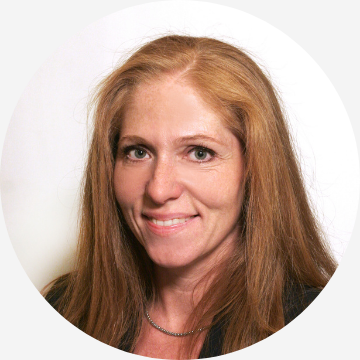
Marina Cugurra 
Head of Legal Issues Department, ETA Consulting
Marina Cugurra got her Degree in Law from the University of Genoa and her Ph.D. Degree from the “Telematics and Information Society” Ph.D. School, University of Florence. She is a lawyer specialised in the R&I projects, in particular in legal issues pertaining to Information Society and new technologies (e.g. GDPR, data ownership, etc.). She is also an expert in ethical and societal themes related to ICT research and technological developments. She is serving as an independent Ethical Expert for the European Commission. Marina has consolidated experience in national projects and international and European projects. She has scientific collaboration with CNIT (National Inter-University Consortium for Telecommunications) and CNR - ITTIG (Italian National Research Council, Institute of Legal Information Theory and Techniques). Legal Advisor in the R&I Division of multinational companies. Contribution to the activities of the legal working groups of Eu-wide initiatives (EU Blockchain Observatory Forum,…) and Chair of the Ethics, Data Protection and Privacy (EDPP) Task Force of the “Citizen’s Control of Personal Data” Initiative within Smart City Marketplace.
- 16887 reads


